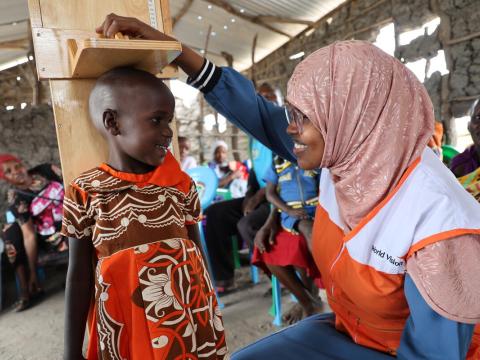
Low-hanging fruit for enhancing accountability and inclusivity in development financing
Martha Bedane provides two crucial and easily implementable actions to drive more effective and inclusive governance, accelerating progress toward the Sustainable Development Goals.
15 November, 2024
In July, I had the privilege of attending the first Preparatory Committee meeting for the 4th Financing for Development (FFD4) conference in Addis Ababa, Ethiopia. This significant gathering brought together high-level delegations, including ministers from UN member states, representatives from various UN agencies, multilateral organizations, civil society groups, and the media. More than a thousand participants engaged in discussions on critical topics.
As with many high-level meetings, the focus was on complex, macro-level issues such as debt sustainability, data monitoring, systemic challenges, science and technology, innovation, capacity building, and financing from both domestic and international sources. These themes are deeply rooted in the Addis Ababa Action Agenda, adopted a decade ago to drive global efforts toward achieving the Sustainable Development Goals (SDGs) through effective financing.
However, during the sessions, I observed that much of the discourse centered on intricate financial and systemic frameworks. Numerous child-centered CSOs (civil society organisations) have been advocating for the FFD to adopt a child-focused perspective, emphasising the inclusion of investments in services and mechanisms that directly and indirectly benefit children. It is important to remember that these meetings are setting the agenda for financing the SDGs by 2030, yet the children and young people meant to benefit from these commitments were notably absent. Drawing on my three years of experience working with 18 World Vision field offices on budget advocacy, I offer two recommendations that could bring tangible improvements.
Ensure Effective and Efficient Utilization of Allocated Budgets
Allocating government budgets to specific sectors without guaranteeing their effective use undermines their potential impact. In numerous field offices, it has been observed that while national parliaments allocate funds for crucial services such as education, child protection, and health these funds often fail to reach the intended beneficiaries.
The gap between allocation and service delivery arises from various issues, including corruption and budget modifications at local government levels. Without proper oversight, even well-intentioned allocations fall short of addressing the needs on the ground.
To address this, organizations involved in budget advocacy should shift their focus from solely advocating for increased funding to robust monitoring of fund disbursement and utilization. Ensuring that allocated resources reach their intended targets is as critical as securing the funds in the first place.
Recognise the Role of Children and Youth in Budget Advocacy
Young people and children can play pivotal roles in monitoring budgets for essential services. In Nepal, World Vision International (WVI) has pioneered child-led budget advocacy initiatives at community, ward, and municipal levels. These efforts have empowered children to identify and prioritize local issues that affect them directly.
Through structured dialogues with local authorities, children have successfully influenced budgetary decisions, leading to the prioritization of child welfare initiatives. This approach not only secures funding for critical services but also acknowledges children as key stakeholders in governance.
To institutionalize this success, governments should formalize the inclusion of children in budgetary and policymaking processes. This could be achieved by establishing mandatory child representation in local councils and committees, ensuring their voices consistently influence decisions.
Conclusion
As world leaders and stakeholders prepare for the 2nd Preparatory Committee session in New York in December 2024, these two areas warrant serious consideration. Strengthening budget monitoring mechanisms and embracing the contributions of young people can drive more effective and inclusive governance, ultimately accelerating progress toward the Sustainable Development Goals.
Martha Bedane is World Vision's Senior Advisor, Local to Global Advocacy and Impact. A member of the Global Advocacy and External Engagement team she work closely with regional and field offices to provide strategic support and foster collaboration across various advocacy initiatives. With nine years of experience at World Vision in advocacy and external engagement, she has developed a deep understanding on the importance of building and connecting knowledge and best practices across the partnership.


